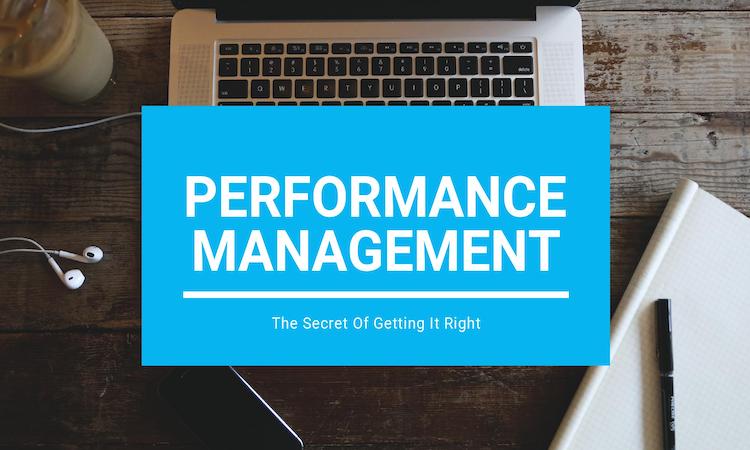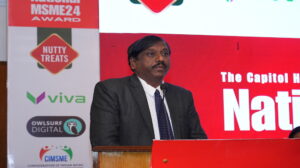Planning to fire an “Underperformer”?

Here’s a little guide to being human, fair and empathic in the process..
I strongly believe that no individual is weaker in intellect than their peers. I, also, strongly trust people with their capabilities. In my experience of handing multiple performance issues, one of the most intriguing questions that remains, is -“How do I judge the performance of an individual? Is it always output and quality based?”
It may be a “yes” for the organisations that are constantly trying to achieve higher profitability. But if you go deeper into it, we might be missing out on some of the core reasons why people are unable to perform.
Let’s first understand what “Performance” is, in an organizational context. It’s defined as “The accomplishment of a given task measured against pre-set known standards of accuracy, completeness, cost, and speed”. (1)
By the definition, it is a transactional concept of delivering what is expected to be delivered. However, some people are unable to accomplish what is expected.
I wanted to uncover some human elements related to performance that have a big role to play.
Below are the broad buckets in which I would categorise the reasons why people turn out to be “poor performers” and “misfits”:
1. Job skill / behaviour mismatch: They get hired for the wrong job. This is a common mistake organisations make. And, when the organizations uncover this mistake, it’s easy to call it a performance gap than a wrong hiring. This also includes innate behaviours and characteristics of people that cannot be ascertained at the time of hiring. Some people have certain fixed action patterns (like anger management or extreme introversion), which may not suit a particular job type. Simply put, someone chose to be a marketer but doesn’t know how to convince people, knows his or her product line well but not great at interpersonal skills. You may see them partially on their CVs, in form of several job moves, because of their inability to prove themselves at one place, but cannot validate it until they start working with you. We cannot control it, but we can find a role for the individual internally, before labelling them as an underperformer.
2. Individuals are not self-aware: Basically they aren’t good at what they do. So, they may be good at something else, which they don’t know about yet. Simply put, they chose a wrong career path. An artist was conditioned into believing that he/she must be an engineer. While it’s a debatable topic, upbringing plays a big role. But, are they really underperformers? In my view, no. The best intervention here would be to help them with their SWOT, and help them meet a career coach.
3. Gap in understanding of what is expected to be delivered: Most common mistake managers make is assuming that the expected outcomes are understood by the employee. It may not always be true. Sometimes it’s too late to bridge the gap between what is expected and what is understood. And such people get labelled as Underperformers. Ask yourself, are they really underperformers?
4. Learning behaviour and Dynamism: Behaviours that impact output- those who are go getters, very positive, task oriented and focused individuals, despite some job skill mismatch, will be able to learn new skills and turn around. On the contrary, those with a “blame game”, negative and argumentative mind-set, will never be able to perform and will always find faults in the system, despite being highly skilled. These are the ones who will be unwilling to change when needed, and will ultimately be termed as poor performers for not being able to deliver the output required for running the businesses. More often than not, “will issues” are tough to fix for the Management and HR.
5. Personal situations: Lets accept that people around are suffering – some physically, some mentally, some in relationships. We all forget that our employees also belong to another ecosystem, beyond our office walls. These have a direct impact on their performance. Task oriented managers only see the output and lack the human element of empathy. There is no harm being a friend when they need, and knowing what’s happening with them personally. If you give them the time off that they need, trust them and not judge them too quickly, they may be your star performers in future. People are looking for trust and belongingness. Let’s not label this person undergoing a bitter divorce case or managing deteriorating health of aging parents as underperformer. But sit with them, and tell them the expectations you have. Give them flexibility and autonomy when they need. And see the difference.
6. Lack of needed motivation / Culture or Value Misfit: We have different needs to remain motivated. For some it’s recognition, for some it’s money, and for some it’s a challenging role. Missing triggers of motivation can lead to lower morale that impacts performance. Also, some people may not fit in culturally or their value system may differ hugely from the organization. While we may want to ignore that element, it plays a huge role in impacting the performance. In my view, one must understand the triggers of motivation, and also understand the differences in value systems. And then, respect them. Instead of imposing your leadership style on people, try to flex yours. Understand that we work with different people, from different communities, brought up in different households, and no two people can be the same in terms of their efficiencies or behaviours.
Role of HR:
Firstly, it’s not a transactional business. As an HR, you are not supposed to just facilitate a meeting in that room to put a person on a performance improvement plan.
In my view, an HR must understand all the above reasons and triggers thoroughly. While we know that as organisations we will have to take tough decisions at times, however, as HR, one must try to take a neutral, non-judgemental, fair and empathic approach. Take the time you need to understand the situation and not jump to conclusions related to underperformance. Understand what went wrong. While it’s important to understand profitability, it’s equally important to extend your support to people, wherever possible. Give people fair chances to prove themselves. If it’s a role misfit case, find internal roles. If its only output based, understand what is stopping the individual from delivering that. If its an attitude issue, counsel them a few times before jumping to any conclusions. Try to turn around controllable reasons. And then take a fair, fact based decision.
Lastly, as HR, once must exercise their knowledge and right, to voice their opinions. If you are not convinced about putting someone on a performance improvement plan, recommend that with logical reasons. Make your role stronger, neutral and what it is supposed to be – Human.
This is purely basis my experience of dealing with several people issues over past 12 years.
Do share your thoughts and experiences!
Written by: Sonam Satija, Senior Manager, HR, Evalueserve
References: www.businessdictionary.com






